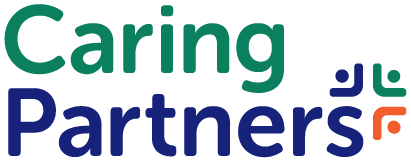Content Marketing
Content Spark: End-of-Life Estate Planning

Only 32.9% of U.S. adults have a will — or put another way: 2 out of 3 adults don’t have a will in the event of their death, according to new research from Caring.com. Too many Baby Boomers are included among those who haven’t created this critical aspect of estate planning, and even some in the “Silent Generation” (age 72+) don’t have a will either. Your senior care organization can help these individuals get over their inertia and better plan the distribution of their assets at death to avoid probate and other complicated and unnecessarily stressful burdens on their survivors.
Content Tips for Any Senior Care Company
Educate your audience about the consequences of not having a will. If you know individuals wiling to share their personal stories of what happened when a loved one didn’t have a will, that could help bring the information to life and compel your readers. It makes the subject relatable and they may be more likely to take action.
Interview a local elder law attorney, financial planner or other end-of-life and estate planning expert to include their insights and tips. You may even find a local expert who is nationally renowned, like Michael and Mark Gilfix and other attorneys at Gilfix & La Poll in Palo Alto, CA.
Discuss the statistics that illustrate why living wills are necessary and beneficial. Your content this month can also include any information relevant to your state, such as the fact that California combines the living will and medical power of attorney into a single form called an advance health care directive, and requires that document to be signed in front of two witnesses or a notary.
Content Tips for Senior Living Communities
Consider hosting a local expert for a guest presentation about estate planning at your senior living community. If you have the space for it: you might even open up the event to other older adults in your town — to both be helpful to their needs and so they can get to know your senior living community and the benefits of living there.
Content Tips for Home Care Agencies
Consider compiling a list of elder law attorneys and financial planners in your community in a one-pager you can share with your client and their family members.
Caring Resources to Support this Spark
See the Caring.com press release, consumer-facing article, and guide to estate planning on the new research about who in the United States doesn’t have a will
See also our Content Spark for Healthcare Directives
Additional Resources to Support this Spark
Nolo.com: Wills, Trusts & Probate
Bankrate: The basics of estate planning
Consumer Reports: Legal DIY websites are no match for a pro
Content Sparks are part of Caring.com’s Content Made Simple program. See all of the Content Sparks.
This Content Spark was originally created Feb 3, 2017, and updated 4/29/21.

You May Also Like This
Content Marketing
Content Spark: End-of-Life Estate Planning

Only 32.9% of U.S. adults have a will — or put another way: 2 out of 3 adults don’t have a will in the event of their death, according to new research from Caring.com. Too many Baby Boomers are included among those who haven’t created this critical aspect of estate planning, and even some in the “Silent Generation” (age 72+) don’t have a will either. Your senior care organization can help these individuals get over their inertia and better plan the distribution of their assets at death to avoid probate and other complicated and unnecessarily stressful burdens on their survivors.
Content Tips for Any Senior Care Company
Educate your audience about the consequences of not having a will. If you know individuals wiling to share their personal stories of what happened when a loved one didn’t have a will, that could help bring the information to life and compel your readers. It makes the subject relatable and they may be more likely to take action.
Interview a local elder law attorney, financial planner or other end-of-life and estate planning expert to include their insights and tips. You may even find a local expert who is nationally renowned, like Michael and Mark Gilfix and other attorneys at Gilfix & La Poll in Palo Alto, CA.
Discuss the statistics that illustrate why living wills are necessary and beneficial. Your content this month can also include any information relevant to your state, such as the fact that California combines the living will and medical power of attorney into a single form called an advance health care directive, and requires that document to be signed in front of two witnesses or a notary.
Content Tips for Senior Living Communities
Consider hosting a local expert for a guest presentation about estate planning at your senior living community. If you have the space for it: you might even open up the event to other older adults in your town — to both be helpful to their needs and so they can get to know your senior living community and the benefits of living there.
Content Tips for Home Care Agencies
Consider compiling a list of elder law attorneys and financial planners in your community in a one-pager you can share with your client and their family members.
Caring Resources to Support this Spark
See the Caring.com press release, consumer-facing article, and guide to estate planning on the new research about who in the United States doesn’t have a will
See also our Content Spark for Healthcare Directives
Additional Resources to Support this Spark
Nolo.com: Wills, Trusts & Probate
Bankrate: The basics of estate planning
Consumer Reports: Legal DIY websites are no match for a pro
Content Sparks are part of Caring.com’s Content Made Simple program. See all of the Content Sparks.
This Content Spark was originally created Feb 3, 2017, and updated 4/29/21.


